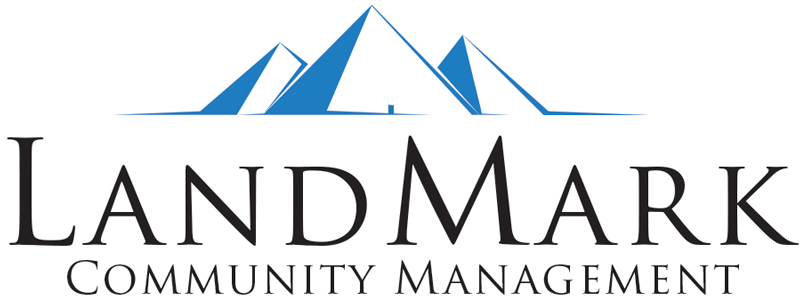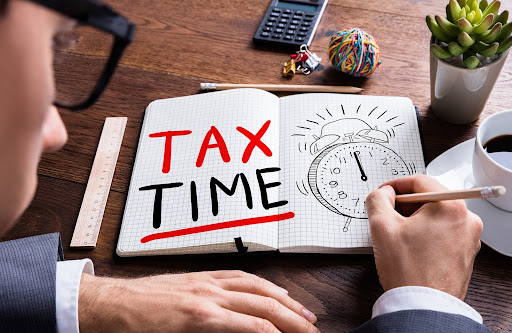Do HOAs pay taxes? Board members of a homeowners association should understand that their responsibilities also extend to managing taxes. Navigating the ins and outs of federal and state taxes, though, can be challenging without the right guidance.
Do HOAs Pay Taxes?
In many ways, homeowners associations are like corporations. Corporations must pay federal taxes, which means HOAs must do the same. Homeowners associations must also pay taxes to the Internal Revenue Service and follow all tax regulations.
Are HOAs Nonprofit Corporations?
Most homeowners associations are organized as nonprofit corporations. However, that does not mean HOAs are exempt from taxation. While HOAs don’t earn a profit, these organizations must still adhere to federal tax laws.
Nonprofit corporations must still pay taxes to the IRS. Of course, there can be exceptions to this rule. A homeowners association recognized by the IRS as a tax-exempt organization need not pay or file taxes.
However, HOAs do not automatically fall under the tax-exempt category. If an HOA wishes to become tax-exempt, it must apply for this status with the IRS. This means meeting certain requirements and qualifications and submitting necessary documentation.
Does an HOA Have to File Taxes?
The short answer is yes. In the same way that homeowners associations must pay taxes, they must also file tax returns with the federal government.
Completing and filing tax returns can be a complicated process. The task can be difficult if an HOA board does not have the right knowledge and expertise. Most associations hire a tax professional or a Certified Public Accountant to help with tax preparation.
HOA Tax Forms to Know
Does an HOA pay taxes? In a word, yes. Homeowners associations do have to pay federal taxes and file tax returns with the IRS. There are two forms that an HOA can file for its taxes: Form 1120 and Form 1120-H.
Form 1120
Corporations use Form 1120, the U.S. Corporation Income Tax Return, to report their income, gains, losses, deductions, and credits. An HOA can file this form if it follows taxation regulations and procedures that regular corporations do.
The benefit of Form 1120 is that an HOA can take advantage of lower tax rates on their taxable income. However, the requirements of this form are more complex than its counterpart, Form 1120-H.
Form 1120 requires detailed reporting of all income and expenses. Homeowners associations must report their income, including homeowner dues, assessments, and income from other sources. It follows the standard corporate tax rates, which can fluctuate based on the amount of taxable income.
Form 1120-H
Homeowners associations can alternatively opt to file Form 1120-H. Known as the U.S. Income Tax Return for Homeowners Associations, the IRS created this form specifically for HOAs.
Form 1120-H simplifies the filing process for HOAs, provided they meet certain requirements. With Form 1120-H, HOAs can follow a straightforward method to report their exempt and non-exempt function income.
To qualify for Form 1120-H, at least 60% of the HOA’s gross income must come from membership dues, fees, or assessments. Moreover, at least 90% of the HOA’s expenditures must be for the acquisition, construction, management, maintenance, and care of association property.
Non-exempt income, such as interest and dividends, is taxed at a flat rate. There is a flat tax rate of 30% on net non-exempt function income.
When are HOA Taxes Due?

An HOA must file Form 1120 or Form 1120-H by the 15th day of the 4th month following the end of its tax year. For most associations, this typically falls on April 15th. However, if an HOA’s fiscal year ends on June 30th, the filing deadline is the 15th day of the 3rd month after the end of the tax year.
Board members should prepare all required documentation to meet the deadline. If an HOA board requires more time, it can request a free extension by filing Form 7004. Many associations routinely file for an extension, which provides an additional six months to file but does not move the due date for paying taxes.
If an HOA has never filed a tax return or has missed paying taxes for several years, it should remedy that as soon as possible. An HOA should determine how many years have passed since its last filing. Then, it can contact the IRS to see if it can file Form 1120-H for the missed years or any other solution the agency can recommend.
Do Homeowners Associations Pay Taxes in Texas?
State tax laws can differ from one state to another. As such, an HOA should check its state tax regulations to understand the requirements and procedures.
In Texas, an HOA can be exempt from franchise taxes if it is also exempt from federal income tax under IRC Section 501(c)(2), (3), (4), (5), (6), (7), (8), (10), (16), (19) or (25). Similarly, an HOA in Texas can be eligible for a sales tax exemption if it is exempt under IRC Section 501(c)(3), (4), (8), (10) or (19).
Homeowners associations can apply for franchise tax exemption in Texas, though. However, it must meet the following requirements:
- Be organized as a nonprofit corporation and run mainly to obtain, manage, construct, and maintain the property in or of a residential condominium or residential real estate development
- Have property that is legally restricted for residential use
- Individual owners of lots or units must own at least 51% of the voting interest
If an HOA meets these qualifications, it can apply for an exemption by filling out and submitting Form AP-206.
Frequently Asked Questions on HOA Taxes
Here are the answers to the most common questions regarding HOA taxes.
Does an HOA pay taxes on interest income?
Yes. Homeowners associations must pay taxes on interest income whether they use Form 1120 or Form 1120-H.
Does an HOA pay property taxes?
Do HOAs pay property taxes? HOAs generally do not pay property taxes on common areas they manage. However, individual homeowners may need to pay property taxes on common areas because they own these spaces collectively. These taxes are usually factored into individual homeowners’ overall property taxes.
Are my HOA dues tax deductible?
Generally, HOA dues are not tax-deductible if a homeowner pays them for their primary residence. However, there are specific situations where HOA dues may be deductible. These include if the homeowner rents out the property, uses part of it as a home office, or uses it for investment purposes.
Does HOA include property tax?
In most developments, HOA dues do not include property taxes. Individual homeowners must pay property taxes separately.
Do HOAs Pay Taxes? Answered!
Taxes can be a complex subject for most HOA boards, especially when completing and filing tax returns. Fortunately, board members can seek help from tax professionals, CPAs, or HOA management companies for this aspect of community management.
Landmark Community Management can help HOAs and condominiums with tax preparation. Call us today at 512-569-5527 or contact us online to learn more!
RELATED ARTICLES:


